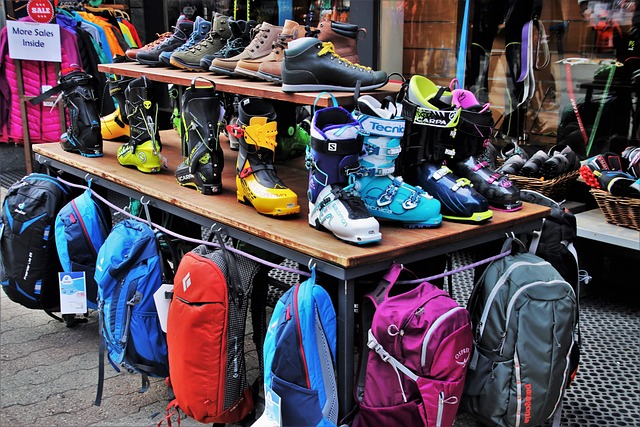
The industry has seen many changes over the years. We now see machine learning and AI in customer service. Technology has advanced. Similarly, virtual reality technology has revolutionised the way many hospitality companies advertise their products and services. Global events also influence trends in the hospitality industry. In the case of the COVID-19 outbreak, businesses had to put emphasis on safety, hygiene, as well as health. Other global events, such as climate change/sustainable, have caused companies to pay more attention to the needs of their local markets.
Sustainability
Many sustainability trends are being developed in the hospitality industry. Hoteliers are working to reduce food waste, water consumption, and other sustainability trends. Some have even installed solar panels on green roofs and electric vehicle charging points. Others are updating lighting systems and switching from incandescent light bulbs to LED. Restaurants have begun to install air-cooled, ice machines.
Hotels are also adapting to local demand by serving local dishes. Many hotels now offer vegan and vegetarian options. They also use sustainable materials and products. Other innovative concepts include Airbnb and farmhouse accommodation, which give guests a more authentic experience. Travel agents also offer services that allow guests to plan local activities and enjoy local cuisine. While the hospitality industry used to be dominated by fast-food restaurants, sugary beverages and other unhealthy foods, there has been a cultural shift that has seen many companies offer healthier dishes.

IoT technology
IoT is an ideal tool for hoteliers to track inventory and manage resources in real-time. They can also leverage this technology to offer personalized customer service. Trackers connected to the internet can be used by staff to locate equipment quickly and reduce wait times. Smart equipment can also monitor inventory and notify staff when items have left the guest's rooms.
IoT allows hoteliers to offer a better guest experience, decrease energy consumption and increase guest satisfaction. These technologies could also be used by hoteliers to cut operating costs and create new revenue streams. Even though the hospitality sector is still slow to adopt new technologies this is an increasing trend.
Keyless entry
While keyless entry technology is convenient for guests, it can also make hotels more expensive. These systems can be costly and hotels may not want to install them. Starwood Hotels & Resorts may need to pay for the upgrade, while Hilton Worldwide and Starwood Hotels & Resorts have indicated that they are willing or able to contribute a portion. Both companies hope to offer the technology to guests by the end of next year.
Keyless entry allows guests to book directly and can even lead to re-bookings and direct bookings. To encourage direct bookings, many hotel brands are looking into this technology.

IoT-enabled Rooms
In the hospitality industry, IoT-enabled rooms provide many benefits, from automated front desk management to smarter room service. Hoteliers can track the movement of guests and their luggage using the Internet of Things. This data helps hotel managers better manage their inventory. IoT-enabled hotels can also allow guests to customize their rooms. Guest can request a virtual assistant to wake up and adjust the temperature in their room.
IoT enabled rooms in hotels can help improve guest satisfaction and make the experience as seamless as possible. Guests can select their preferences from a central app, and the room will activate them. Smart devices installed in the room are able to detect movement or occupancy and can turn off some appliances when a guest leaves.
FAQ
What's Gen Z looking forward to in 2022
Preparation is key to the future. This means knowing where we are and how we can get there. This means we need to look back more often in order to see the trends shaping our world.
It means also looking forward, thinking beyond tomorrow and anticipating the emerging technologies, innovations, and changes that will affect our lives and work.
This is why we are here to learn, share knowledge, and help each other solve problems. Because the future will depend on us. It's our responsibility to ensure a bright future.
We must look at the present and forecast the future. Data is essential for this. Data. Lots of data. Data that shows what young people want to know now and in five year's time.
Data that helps us understand what motivates and frustrates our customers. Data that can help us understand what's most important to them.
What are consumers buying post-pandemic in 2022?
Consumers will continue to purchase products that make them healthier and help protect against illness. This includes food items such as snacks, drinks, pet foods, and supplements.
They also tend spend more on their health insurance which is expected to rise by 10% each year over the next decade.
The greatest change we see is a greater emphasis on prevention and wellness. The majority of consumers will want to buy products that promote healthy lifestyles.
This means investing in products that help us sleep better or reduce stress levels and keep our skin and hair looking young.
The pandemic will make healthy living more important for shoppers, which will lead to increased spending on preventative care.
What are the emerging consumer trends in tourist?
It is essential to keep ahead of the curve in any industry to be successful. You'll be left behind if you aren't thinking about how consumers behave now. That's why it's important to watch for emerging consumer trends.
The biggest trend affecting travel today is the rise of social media. Consumers share more information about where they go, what they do there, and what they feel about it. Travelers are more aware of where they go and share their experiences with the world.
Twitter and Facebook allow users to share photos and videos with their friends and followers. As a result, these sites are playing a huge role in shaping our understanding of destinations. Social media can help us become better travelers through our ability to connect with locals as well as learn more about the local culture.
Another important change is the rapid growth of mobile tech. People are spending more time with smartphones and tablets, rather than computers. ComScore claims that smartphone penetration grew from 23% in 2011 to 27% last year. Mobile devices are changing the way that we interact with information, and giving us new ways of communicating. There are apps to help with everything from booking flights and ordering food to finding directions, watching movies and checking out weather forecasts.
The way we travel is also changing thanks to mobile technology. Our phones can be used to book hotels, view maps and read reviews. We can also make reservations for restaurants from our phones. While we wait at restaurants and museums, our phones can be used to check email. We can also listen while driving. These changes have made it possible to travel smarter, faster and more efficiently.
These two big shifts are not the only ones that affect travel. There are also many smaller trends that impact travel. For example, people use smartphones to find attractions, events, and activities based on location. Foursquare and Yelp were apps that helped travelers plan their trips based on the recommendations of friends. These tools are revolutionizing the way we see and experience cities.
A growing number of companies offer services specifically for tourists. These companies offer customized tours, transportation and accommodations as well other amenities. They assist visitors in enjoying the city without all the planning.
Travel marketers have plenty of opportunities to capitalize on these trends. However, it takes smart marketing strategies and a good business strategy to recognize which trends apply to your company and which don't.
How does technology influence the fashion industry?
Technology is becoming a key tool for shoppers to shop and purchase clothes. Consumers use their smartphones and tablets to compare prices and browse different stores. This may involve using apps to scan products or get instant feedback from other shoppers.
This is especially true when you're looking for unusual or hard to find clothing. The Internet has become a great place to shop for designer goods. Online retailers eliminate the need to visit physical shops to purchase your favorite brands.
Statistics
- While 19% of respondents state they didn't travel in the past two years, other families' favorite experiences included: domestic travel (19%), beach resorts (12%), road trips (11%), international travel (10%), staycations (7%), camping (6%), and more.1 (americanexpress.com)
- and what they are traveling for, with 78% of respondents wanting to impact the community they visit positively.1 Eating & Shopping at Small businesses (americanexpress.com)
- Nearly 30% of consumers have started their holiday shopping, though 55% say rising inflation has altered their gifting and spending plans for 2022. (junglescout.com)
- Just 5% of consumers expect to wait until December to begin shopping, while more than 70% said they'd start before Thanksgiving. (junglescout.com)
- OTC Medicine 57% Beauty & Personal Care 52% Vitamins & Dietary Supplements 51% Home & Kitchen 47% Top retailers where consumers are shopping in 1. (junglescout.com)
External Links
How To
Where are the travelers going?
Travelers are going to destinations that provide inspiration, experiences, and connection with local culture.
The world is getting smaller. More people travel more often. Tourism is growing faster then any other industry. The tourism industry is bigger than retail.
In an increasingly globalized environment, travel has become more accessible, safer, and easier than ever. However, there is still much to be done.
Travelers seek places that inspire them, provide authentic cultural experiences, and create memorable memories.
They want to discover new places, meet new people, and experience something they've never experienced before.
When they go on vacation, they also need to feel safe. They want assurance that they will be safe returning home after being robbed or assaulted.
Safety is not the only thing that matters. It's important for travelers to be able to enjoy their time away. They want to explore new cities, restaurants, sights, and activities.
They seek to make friends along their journey and learn about the culture of the countries they visit.
These are also the reasons that tourists flock to major tourist attractions like Universal Studios Hollywood and SeaWorld Orlando.
There is a big difference between these locations and the average hotel chain. These are destination resorts.
They offer guests everything from amazing food and entertainment to incredible views and unique experiences.
Many of the world's top 10 most visited hotels are located in theme parks. Many of the most visited destinations by international tourists are also located in theme parks.
Tokyo Disneyland, for instance, is one of Japan's most visited tourist spots. Since 2012, it has been voted #1 by TripAdvisor's Travellers Choice Awards.
According to the National Geographic Society Tokyo Disneyland was the most popular place for families to visit in 2019,
It was ranked number 3 in their list of the top 50 family-friendly destinations around the globe.
Disneyland Paris was second. Universal Studios Hollywood came third.
This may be the place you should go next if you're searching for a resort destination.